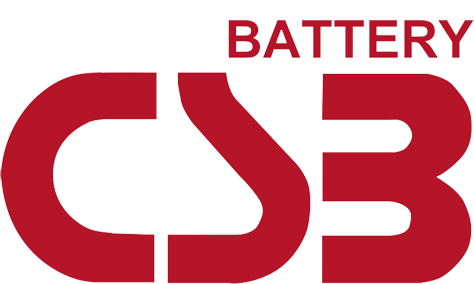The Future of UK Data Centre Power: How UPS Systems are Adapting to Cloud and Edge Computing
In the dynamic landscape of digital infrastructures, the demand for more robust, reliable, and sustainable power is escalating. That's where the Uninterruptible Power Supply (UPS) systems come into play. By standing at the forefront of this digital revolution, UPS systems ensure a seamless experience in data centres, navigating the challenges of the evolving cloud and edge computing landscapes. As we delve deeper into this article, we aim to unravel the intricate relationship between the future of UK data centres and the steadfast evolution of UPS systems. From power consumption trends to the role of the UPS in business continuity, we will explore how this vital component is bound to become indispensable in the age of IoT, big data, and cloud computing. Brace yourself as we prise open the door to the future of data centre power and how UPS systems are steadily adapting to the ever-changing demands of cloud and edge computing. The journey promises to be insightful and enlightening!

The Increasing Demand for Data Centres
Buried deep beneath our digital civilization lies an ever-expanding horizon of immense memory banks and high-speed connections—yes, we're talking about the vital networks of data centres. The increasing reliance on technology and data-driven solutions is setting an unprecedented pace of demand for its very cradle. Propelled by the leap in digitisation, the demand for commercial data centres in the UK alone is predicted to burgeon six-fold in the next decade. Far from being just another phenomenon, it's a crystal-clear testament to the crucial role these digital powerhouses play in shaping our contemporary existence.
Power Consumption of Data Centres
While these sparkling fortresses of digital might mightily usher us into the dawn of a new age, they consume immense power. It's an aspect that's hardly considered unless you're in the industry. The rise in demand for these technological behemoths brings with it a sharp rise in their power consumption. According to reports, UK data centres have seen a staggering 400% surge in electricity usage since 2015, a trend mirrored worldwide. It's projected that as we navigate further into the decade, global data centres' power consumption may spike, moving from 1 to 2% to a significant 3-4% by its end.
Imagine that! Some large data centres in the UK alone can consume an astonishing 30GWh of power annually. That's the equivalent of powering over 30,000 homes for a year! And bearing the trajectory in mind, the electricity usage of these behemoths of data storage is estimated to double by 2026.
Think about it: every time you ask Siri for the weather, or Alexa to read your news, or simply stream online music, somewhere down the line, a data centre is whirring to life to process your request. And with every rotation of its gigantic servers, it's consuming power.
We can therefore see the big picture emerging. Not only are these data centres the fulcrum of digitised society, but the very intensity of their operations implies a deeper, more comprehensive understanding of power conservation methods. It's a testament to how integral they are in our movement towards a power-efficient, sustainable future.
The Future Impact of Data Centres on Power Supply
Imagining life without the digital world is like envisaging a desert without sand. This ever-growing dependence on the digital world is pushing the boundaries of our physical resources, especially power supply. Indeed, the heartbeat of the digital ecosystem — data centres — exhibits an insatiable hunger for power. And the anticipation is that this appetite will only magnify in the future.
Anticipated Power Consumption by Data Centres
By 2030, global data centres' hunger for power is expected to reach astounding proportions – equivalent to the entire power consumption of Europe. To put this into perspective, visualise every home, every city, and every factory in all of Europe powered merely to feed the power appetite of data centres around the globe.
So, how does this prediction play out in individual markets? Let's zoom into the UK as a case study. The power demand from data centres in the UK market is estimated to clock in at a considerable 2.19 thousand MW in 2024. Furthermore, this demand is anticipated to escalate at a CAGR of 10.49%, ultimately soaring to 3.61 thousand MW by 2029. Effectively, in less than a decade, power demand from data centres in the UK alone is predicted to skyrocket by more than 65%.
Europe isn't far behind. European data centres are projected to account for a substantial 3.2% of the EU's total electricity demand by 2030. Therefore, the equivalent of every 30th light bulb in the EU shall be lit purely to satiate the power thirst of data centres.
"By the turn of this decade, our collective need for data will be mirrored in massive power consumption by data centres. The bite these digital beasts take out of global power supply will have profound implications for how we produce and distribute power, demanding increased efficiency and innovation in renewable energy solutions."
Make no mistake. These numbers aren't just intimidating; they are a clarion call for action. The power demand represented by data centres underlines an emerging truth of our digital age – our collective thirst for data will be reflected not just in terabytes and petabytes, but also in the megawatts and gigawatts they consume. As data centres continue to grow, they are set to become key players in the world's energy stage, exerting a significant influence on power production, distribution, and consumption patterns. Given this, we must think ahead and prepare to meet this challenge – innovating cleaner, greener energy solutions, and driving efficiencies, even as we quench our data thirst.
The prospect may seem daunting, but remember, every challenge is also an opportunity, and these bear incredible promise for a sustainable future. Powering the digital world of tomorrow doesn't just mean more power - it also means smarter power.
Role of UPS Systems in Data Centres
In the world of data centres, the significance of uninterrupted power supply (UPS) systems cannot be understated. Ensuring seamless operations, protecting critical equipment from power surges, and preserving uptime; UPS systems are indispensable in data centres. Offering efficient solutions for business continuity, adaptability to edge computing, and reliable power supply, UPS systems have become the cornerstone of modern data centres. Let's explore why.
Business Continuity
As businesses increasingly rely on digital operations, the role of UPS systems in ensuring business continuity has grown. Essentially, by installing a UPS system, backup power during outages is ensured, keeping essential equipment online and preserving your data's integrity.
- Avoid critical power interruptions
- Data preservation during power failures
- Peace of mind knowing that power-related business interruptions are minimised
The benefits are clear. A sudden power outage or a fluctuation in the grid can critically interrupt operations, lead to data loss, and severely impact the bottom line. But with the UPS system acting as a barrier against such inconveniences, uninterrupted data centre operations can be assured.
Adaptability to Edge Computing
The digital landscapes are changing. Evolving user demands and the emergence of distributed edge computing requirements have necessitated the adaptability of UPS systems. Modern UPS systems satisfy these needs by providing resilient power infrastructure resilient to distance and decentralisation challenges.
- Meeting the power needs of decentralised data processing centres
- Ensuring reliable power supply in remote-edge setups
- Part of a solution allowing efficient edge computing operations
With these features, UPS systems are becoming the perfect fit for the ever-evolving data centre landscape, perfectly complementing the distributed nature of edge computing.
Efficiency and Reliability
In the heart of a data centre lies its power infrastructure, and the UPS system holds a key role. With advancements in rack UPS technology, modern UPS systems have become more efficient and reliable.
- Enhanced power usage through smart load balancing
- Improved uptime due to increased reliability
- Long-lasting, durable equipment ensuring less frequent replacements
With this new era of UPS systems, increasing power efficiency and reliability are no longer concerns. Instead, they are definite advantages that contribute to a data centre's operational success.
Whether it's about preserving business continuity, adapting to new edge computing architectures, or providing an efficient and reliable power supply, the role of UPS systems in data centres is evolving and becoming more important than ever. It's a unique blend of technology and infrastructure that's driving the data-driven world forward with unflinching reliability and inarguable efficiency.
Components of Data Centre Power Supply Systems
In the digital age, data centres have become the heart and soul of many businesses. We rely on them for everything from data storage and distribution to complex computations and analysis. However, these power-hungry behemoths are only as effective as their power supply systems. Unfortunately, power supply systems are often overlooked or misunderstood components of data centre design and operations.
Let's look at the three critical elements of a robust and resilient power supply system for data centres: Uninterruptible Power Supplies (UPS), Generators, and Electrical Distribution Units (EDUs).
Uninterruptible Power Supplies (UPS)
UPS systems are the unsung heroes of data centres. They ensure that your operations run smoothly without disruptions. A slight hiccup in power could mean a catastrophic loss of critical data, making UPS systems the first line of defence in data centre power distribution.
One of the key elements we should know about UPS units is their vital role in protecting sensitive equipment residing in data centres from power interruptions or disruptions. For a fact, it's the UPS that guards your systems and data against power outages, voltage spikes, and other electrical disturbances, ensuring seamless operation and protection of your data.
This brings out the importance of choosing the right UPS system for your data centre. Various factors come into play, including the size and scope of your operations, the nature of your equipment, and your overall power needs.
Generators
Following the UPS units, generators form the next layer of power supply protection in data centres. Power outages can sometimes extend for hours or even days. When that happens, UPS units alone won't suffice. That's where generators step in.
Generators serve as a backup power source when the main grid fails or when the UPS units are unable to manage the load. They power up within seconds of a power failure, ensuring minimal downtime and uninterrupted data centre functions.
There are several types of generators available for data centres, including diesel, natural gas, and hybrid generators, each with their specific pros and cons that should be considered in line with the specific needs and environmental considerations of your business.
Electrical Distribution Units (EDUs)
Last but not least, Electrical Distribution Units (EDUs) are crucial in managing and distributing power within a data centre. They help distribute power to the various servers and components efficiently and evenly.
A well-designed EDU can dramatically improve the efficiency of your data centre, ensuring that all components have the necessary power at the right time without overloading any circuit.
Moreover, modern EDUs come with advanced features such as monitoring capabilities, which help in identifying and addressing potential issues even before they turn into actual problems.
To wrap up, a reliable and efficient power supply system is an essential part of a data centre. It's a blend of robust UPS systems, capable generators, and advanced EDUs. By investing wisely in these three elements, you can ensure uninterrupted operations, protect your equipment and data, and ultimately drive your operations' success.
Conclusion
The rapid growth of data centres in the UK, fuelled by the increasing shift towards cloud and edge computing, is reshaping the landscape of power supply systems to meet even more diverse and demanding power requirements. The role of uninterruptible power supply (UPS) systems has become even more crucial in ensuring business continuity and maximum uptime in these facilities.
As a leading player in the industry, Secure Power offers a comprehensive range of power backup solutions tailored to meet the unique power needs of these data centres. From top-tier UPS systems to robust generator systems and efficient electrical distribution units, our solutions are all designed to ensure reliability, efficiency, and longevity.
In addition to our advanced product range, we provide comprehensive UPS and generator maintenance services to ensure optimal performance of power systems over their lifetime. Our dedicated team of experts is always on hand to provide service and support, making us a trusted partner for reliable power solutions across many sectors.
Remember that each data centre's power requirements are as unique as their operations. Partner with a knowledgeable and experienced provider like Secure Power to effectively manage and maintain your power supply system. Visit Secure Power to learn more about our solutions and services.
As we look to the future of power supply in the UK data centre industry, there's no doubt there will be more challenges and opportunities. Together, we can navigate these roads, ensuring your business remains powered up and ready for what the future brings.
Frequently Asked Questions
-
What is an uninterruptible power supply (UPS) system?
An uninterruptible power supply (UPS) system is a device that provides emergency power to a load when the input power source fails or drops below a certain threshold. It protects critical equipment from power interruptions or fluctuations.
-
How are uninterruptible power supply systems adapting to cloud and edge computing?
Uninterruptible power supply systems are evolving to meet the growing demands of cloud and edge computing by offering higher power capacities, scalable designs, modular architectures, increased efficiency, advanced monitoring and management capabilities, and compatibility with virtualisation technologies.
-
Why is the future of UK data centre power reliant on UPS systems?
The future of UK data centre power is reliant on UPS systems due to the increasing demand for reliable and uninterrupted power supply. Data centres need UPS systems to ensure continuous operations, protect critical data and equipment, and minimise downtime and financial losses.
-
What are the key factors to consider when selecting a UPS system for a data centre?
When selecting a UPS system for a data centre, key factors to consider include power capacity, scalability, efficiency, reliability, battery backup time, maintenance requirements, compatibility with infrastructure, and the ability to integrate with monitoring and management systems.
-
How can UPS systems contribute to sustainable and energy-efficient data centres?
UPS systems can contribute to sustainable and energy-efficient data centres by implementing technologies, such as energy storage, voltage regulation, power factor correction, and intelligent load management. These features help optimise power usage, reduce energy waste, and lower carbon emissions.














